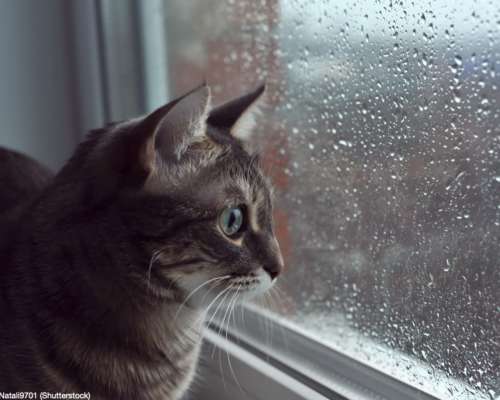A few mornings ago, I read Psalm 136 as part of my early devotions. There are twenty-six verses in the psalm, and each verse ends with the words “His love endures forever.” Over and over (twenty-six times), David reminds us of God’s love. Imagine the objet d’affection in your life–your spouse, child or parent telling you over and over (twenty-six times a day) that they love you! Would you ever get tired of hearing it? Could you ever doubt it? Yet, some people never do hear that in a lifetime from a parent or child (or their spouse.)
In this life

In this life, we all experience pain and heartache. Sometimes, we even break because we’re so fragile on the inside. When the bride of my youth died after forty-six years of marriage, I felt like I was hemorrhaging, like there was a gaping wound in my side that could not be stemmed.
We commonly receive hurtful responses from others, when we’re not internalizing our own failures. I read the comments of a psychologist once who regretted the day she chose counseling as a profession, after becoming aware through her patients of how cruel people can be to each other. Of what goes on behind closed doors. I can only imagine, not that I’d want to. What do we do when we’re abandoned, cast away by those we loved?
Safe spaces
The first step is to understand that we are not facing our situation alone. The psalmist writes: “God is our refuge and strength, a very present help in trouble” (46:1.) Notice the word “refuge.” This is similar to what he says in Chapter 32, where he call God his “hiding place.” Hiding places are locations where no one can find you. It gives you time to recoup and come up with a plan. Perhaps wait until the storm blows over.
I remember looking frantically for a safe space in a dream once. Several years ago, I was interceding in prayer on behalf of a child who had a problem with an imaginary friend. Now, most imaginary friends are part of the experience of growing up as Piaget, Taylor and others have shown, and imaginary friends have a positive role in the area of imagination as well as allowing the child to understand and sort out real world issues. But sometimes an imaginary friend is not imaginary and occasionally not a friend. During this time of intercession, I had a disconcerting dream where I was in a ski lodge, and I was attacked by a spiritual entity in the guise of a very stout and very powerful woman (sort of like a “demon on steroids.”) She was knocking things about and being violent and physically aggressive towards me. I was caught completely off guard and shocked (utterly surprised) at her aggressiveness. In my dream, my first response was to get away from this crazy person, find a hidden place to evade and avoid her while I evaluated the situation and considered my options. I wound up in the attic of the lodge between the rafters.
Parents can serve as safe spaces, too. As small children, we run to our mothers when we’ve scraped our knees or have been frightened by a clap of thunder. Recall how safe you felt wrapped in your mother’s arms. Raise your hand if this example resonates in you. Men in combat who are dying sometimes call for their mothers in desperation. Sadly, their mothers are not present, but their God is. God will hide you like he did Elijah in the wilderness. And, he will heal you as well.
My favorite poet (Alfred Lord Tennyson) once wrote “‘Tis better to have loved and lost than not to have loved at all.” That’s well and good to hear, but not when you’ve just suffered loss. Advice such as this only potentiates the pain. At the very least, St. Augustine would not be comforted.
Augustine of Hippo (354-430 AD) was not always a saint. But he did have a woman that he loved and cherished. He describes in his book Confessions the last last time he saw her: “When they took from my side, her with whom I had slept for so long, my heart was torn at the place where it stuck to her, and the wound was bleeding…..My heart, which clung to her, was broken and wounded and dropping blood.” Confessions XV. Augustine’s safe space in which to heal was building his relationship with God under the instruction of his mentor Ambrose.
Another famous Christian, C.S. Lewis, this time from the past century also knew heartache when his wife Joy Davidman died. C.S. Lewis finally fell head-over-heels in love with a women just years before he would die, and she would predecease him. He describes his love in the book “Surprised by Joy” and his lost in “A Grief Observed,” one of the best books on mourning that you can find. Lewis found solace in his writing, though his health quickly failed him.
Practical help
When a relationship ends, it’s like a death. And there is a grieving process that–sooner or later–must be dealt with. A few months after my wife died, I was fortunate enough to meet a young widow who told me about a thirteen-week workshop that was about to start at her church. The program was called Grief Share, and it was just what I needed. The first session was a real eye opener for me. Some people who lost loved ones just a month or two earlier were not yet “ready” for it. They just sat and cried for the full ninety minutes. One person in group in his early forties was coming to grips with the loss of a twelve-year-old brother he accidentally shot and killed thirty years earlier. But most of the dozen or more attendees had lost a spouse or partner. There is also a coping program for people who no longer have a marriage and this is called Divorce Care. Both of these organizations approach the material from a Christian perspective and are truly worthwhile when properly presented.
Pain from a broken heart does not last forever. God promises “Though you have made me see troubles, many and bitter, you will restore my life again; from the depths of the earth you will again bring me up” (Psalm 71:20.)
God’s love endures forever.
Broken spirits
A broken spirit (as I see it) is when we just give up, because everything we’ve tried has failed. There’s a certain frustration and sadness present. Back in the day, I used to watch western movies and television shows. Every so often a rancher would capture a wild stallion or a mustang. They would try to tame it, so they could saddle and ride it, but if the wrangler was too cruel and heavy-handed, he could “break” the horse’s spirit, and then it would never be the same. It would be only a listless shell of what it once was. Perpetual sadness would overcome the love of life in the beast.
“We are partners in our own deception. The lies we tell ourselves. The life we have settled for, when we yearn for the life we wish for. We become our own worst enemy as we yearn for the things we don’t have and discredit the gifts we [do] have.”
– Tony Curl
I’ve seen children in families with broken spirits. The children are constantly criticized by their parents for things that children do (like spilling milk.) I asked my young adult Sunday school class once whether Jesus, who lived a sinless life, might have ever spilled milk as a small child. At least one lady in the class thought not, because she was raised to think that spilling milk, even by accident, was a sin. This might have been what she was taught, or perhaps only what she had mistakenly inferred. When the class concluded that Jesus, being human, might very well have spilled milk like every other child in the world has, it was like a weight had been lifted off this young woman’s shoulders. But there was a second problem here. This lady was in her early forties, and it was quite a while since she was a toddler. The fact that she cried over it in class suggested that it smoldered all these years somewhere in her memory. Another way parents can break a child’s spirit is by comparing or contrasting them to an older, perhaps more successful sibling. An older sister who is perceived as more attractive, an older brother who is more athletic–the list goes on.
Don’t shoot yourself in the foot
And then we can break our own spirit ourselves. As author Tony Curl is reported to have said: “We are partners in our own deception. The lies we tell ourselves. The life we have settled for, when we yearn for the life we wish for. We become our own worst enemy as we yearn for the things we don’t have and discredit the gifts we [do] have.” We need to let go of our insecurities and disappointments. One of the good things I like about teaching is that every semester, you start over from scratch. New faces in class, new possibilities. The old is wiped away and there is a new adventure ahead of us. Tell me that this is not descriptive of our faith.
The upside to having a broken spirit is the acknowledgment that we cannot “go it alone.” We need what the people who attend AA meeting would call their “higher power.” And by the way, alcohol can and does break spirits as much as a horsewhip does. Alcohol in excess “kills” the spirit “softly” over time, as Roberta Flack might put it.
David also reminds us that “The Lord is near to the brokenhearted and saves the crushed in spirit” (Psalm 34:18.) The more we need Him, the louder we cry out to Him, the closer he draws nigh to us. I know of Christians who are more or less perpetually broken in spirit, and that can be a valuable lifestyle if the balance between sin and grace can be properly maintained. For example, most of us sin, and then confess our sin to God asking for forgiveness, before continuing our day without a second thought. For others, the remorse is greater. Our Catholic brethren would address this sin and/or remorse through penance, which could suggest that you can approach God though good works. And this should not to be confused with restitution. Remorse without confession can lead to self-pity or loathing.
Head for the bushes
In my spirit I want to please my Heavenly Father, but in my flesh I do those very things that grieve Him. As did Paul (Romans 7:15-19) who strikes the perfect balance:
I do not understand what I do. For what I want to do I do not do, but what I hate I do.
And if I do what I do not want to do, I agree that the law is good.
As it is, it is no longer I myself who do it, but it is sin living in me.
For I know that good itself does not dwell in me, that is, in my sinful nature.
For I have the desire to do what is good, but I cannot carry it out.
For I do not do the good I want to do, but the evil I do not want to do—
With sin comes fear and a flash of self-disappointment (at least in my walk.) I feel shame, and a desire to hide in the bushes like Adam did. But with confession comes healing, restoration with my Creator. Again, David writes this time in Psalm 103:14: “As a father has compassion on his children, so the LORD has compassion on those who fear Him. For he knows how we are formed, he remembers that we are dust.” And incidentally, even though Paul’s Epistle to the Romans is the first epistle in the New Testament, it was not composed when Paul was young in the faith. The Epistle to the Romans was thought to have been composed near the end of Paul’s life. Ergo, Paul was never able to live a righteous life by his own devices. He struggled with sin to the very end. No matter, because God’s love endures forever.

When I lived in Texas several years ago, we had a President of a College in a near-by town who was interviewed by the local press when she first was selected for the appointment as president. During the course of the interview, the conversation turned to balance in a person’s life or self-worth–something like that. The president of the college said that in her purse she had an object that was about the same size and dimensions of a silver dollar. On one side of her “coin” were the words “I am dust” while on the other side was the inscription “God loves me.” By reminding ourselves that we are dust, we avoid self-exaltation, and by reminding ourselves that “His love endures forever,” we are again reunited.
“God has said, ‘Never will I leave you; never will I forsake you.’”
Hebrews 13:5
But what happens if we get caught up in sin? We get caught in an affair, a lie, or many lies? We lose control, steal from our employer or cheat on our taxes, question God, rebel against what we know is right and expected of us. We think continually of sin, for weeks on end–years even! What then? Again, from the psalms (103:8-12)
“The Lord is compassionate and gracious,
slow to anger, abounding in love.
He will not always accuse,
nor will he harbor his anger forever;
he does not treat us as our sins deserve
or repay us according to our iniquities.
For as high as the heavens are above the earth,
so great is his love for those who fear him;
as far as the east is from the west,
so far has he removed our transgressions from us.”
Psalm 103:8-12
Even if our heart condemns us, John reminds us that “God is greater than our hearts, and he knows everything.”
No secrets
God knows everything. Think about that for a second. I was the editorial advisor for a college newspaper for twelve years, and the idealistic goal in college journalism in the U.S. was “no secrets.” Imagine a society which is completely transparent. Nobody can hide anything. Pretty scary, eh? Yet, we can’t hide what’s in our heart from God. We may be able to fool others, or fool ourselves, but we can’t fool God. You can be in a life boat in the middle of the Atlantic with another person, tossed about in a gale. But whisper something to your companion and God hears it, even if your companion could not.
His love endures forever
Scripture tells us that God is afflicted with the afflictions of His people. Through Jesus, he can understand our pains and temptations. It is His will that we come to him in our hour of need. For He is our “ever-present help in trouble” (Psalm 46:1) even if in our fragile state with our limited senses, we don’t fully understand this. And if we don’t, then that is okay too.
Featured photo: warnerimages (iStock.)



